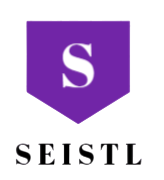The Educational Landscape – Adapting to the Rise of Essay Writing Support
The educational landscape is undergoing a transformative shift with the burgeoning rise of essay writing support services. In recent years, the demand for these services has surged, prompting a reevaluation of traditional approaches to learning and assessment. The proliferation of online platforms offering essay assistance has opened up new avenues for students grappling with academic challenges, but it has also sparked debates about the ethical implications and long-term impact on education. One of the driving forces behind the surge in essay writing support services is the increasing pressure on students to excel academically. In an era marked by competitiveness and high expectations, students face an immense burden to perform well in their studies. The prevalence of standardized testing and the emphasis on grades as a measure of success have contributed to a culture that prioritizes results over the actual process of learning. As a result, students, facing tight deadlines and a myriad of academic responsibilities, turn to essay writing support services as a means to cope with the demanding academic environment.

The advent of technology has played a pivotal role in the proliferation of these services, making them easily accessible to students around the globe. With just a few clicks, students can connect with professional writers who offer tailored assistance in crafting essays, research papers, and other academic assignments. While this convenience has undoubtedly helped students navigate the challenges of their academic journey, it has also raised concerns about the authenticity of the work submitted and the erosion of critical thinking skills and find more info
. The ethical considerations surrounding essay writing support services have sparked debates within educational institutions. Some argue that these services provide a lifeline for struggling students, offering them the support they need to succeed in their studies. However, critics contend that reliance on such services undermines the integrity of education, as it compromises the principle of individual effort and personal growth. The challenge lies in finding a balance that acknowledges the existence of these services while promoting a culture of academic honesty and genuine intellectual development.
Educational institutions are now grappling with the need to adapt their approaches to assessment and teaching methodologies. The rise of essay writing support services underscores the necessity for a more holistic evaluation of student performance, one that goes beyond traditional exams and focuses on fostering a deeper understanding of the subject matter. Additionally, educators are exploring innovative ways to engage students in the learning process, emphasizing critical thinking, problem-solving, and creativity to equip them with the skills needed for the rapidly evolving global landscape. In conclusion, the educational landscape is in a state of flux as it grapples with the rise of essay writing support services. While these services offer a lifeline for students navigating the pressures of academia, they also pose ethical challenges and necessitate a reevaluation of traditional assessment methods. The adaptation of educational institutions to this changing landscape requires a thoughtful and comprehensive approach that prioritizes genuine learning and personal growth while addressing the evolving needs of students in the 21st century.
